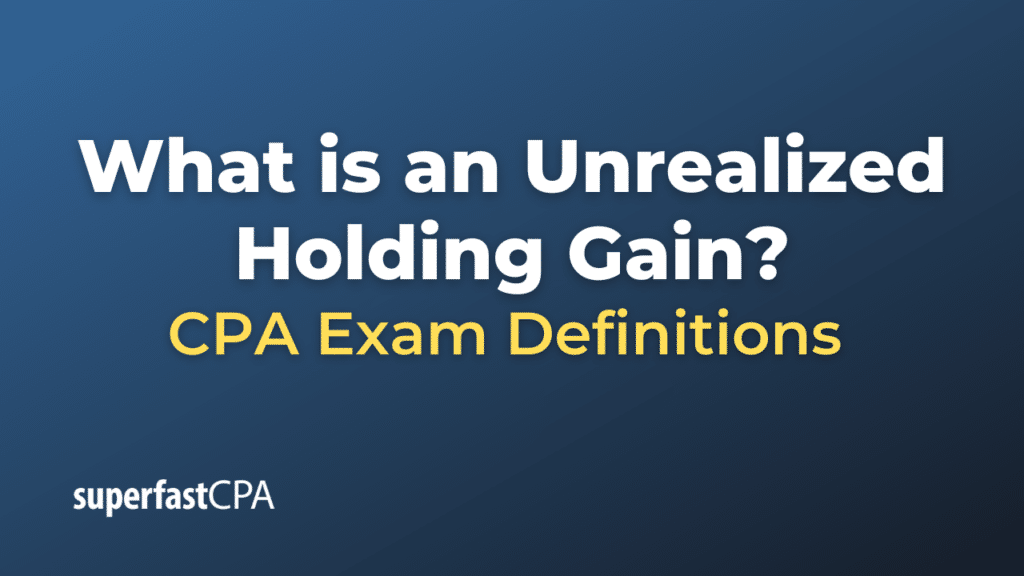Unrealized Holding Gain
An unrealized holding gain is a gain that occurs when an asset, such as stock or real estate, increases in value but has not yet been sold. Because the asset is still being held, the gain is “unrealized” and only exists on paper. In other words, it is a potential profit that has not been converted into cash. Unrealized holding gains can be contrasted with “realized gains,” which occur when the asset is actually sold and the profit is realized in the form of cash.
For accounting purposes, companies may need to disclose these unrealized holding gains or losses in their financial statements, especially if they are publicly traded. However, individual investors usually consider unrealized holding gains as a part of their investment performance but do not have to report them for tax purposes until they are realized.
Example of an Unrealized Holding Gain
I’ll provide an example focusing on how unrealized holding gains are treated in the context of a fictional business named “GreenGrocers Inc.”
Initial Scenario:
GreenGrocers Inc. decides to diversify its investments and buys 200 shares of a tech company called “FutureTech” for $100 per share. The total cost of this investment is 200 x $100 = $20,000.
Asset Value Increases:
Six months later, the shares of FutureTech have increased to $120 per share.
Calculation of Unrealized Holding Gain:
The current value of GreenGrocers Inc.’s investment in FutureTech would be 200 x $120 = $24,000.
The unrealized holding gain on this investment is $24,000 – $20,000 = $4,000.
Accounting Treatment:
In its financial statements, GreenGrocers Inc. may have to account for this unrealized holding gain, depending on the accounting rules applicable. For example, under U.S. GAAP (Generally Accepted Accounting Principles), the company might mark this investment to its current fair market value and recognize the unrealized holding gain as a component of other comprehensive income, which is a section of shareholders’ equity.
Balance Sheet Implications:
- The asset value of the FutureTech shares would be updated to $24,000 on the balance sheet.
- The equity section might show a $4,000 increase under other comprehensive income due to the unrealized holding gain.
- Typically, the unrealized holding gain won’t be included in the net income for the period because it’s an unrealized item. Net income usually only includes realized gains and losses.
Future Scenarios:
- If GreenGrocers Inc. decides to sell the FutureTech shares at $120, the $4,000 unrealized holding gain becomes a realized gain, which would generally be recorded as investment income on the income statement.
- If GreenGrocers Inc. continues to hold the shares and the price increases further or decreases, the unrealized holding gain would adjust accordingly.
This example illustrates how unrealized holding gains work in a business context, both conceptually and in accounting treatment.













